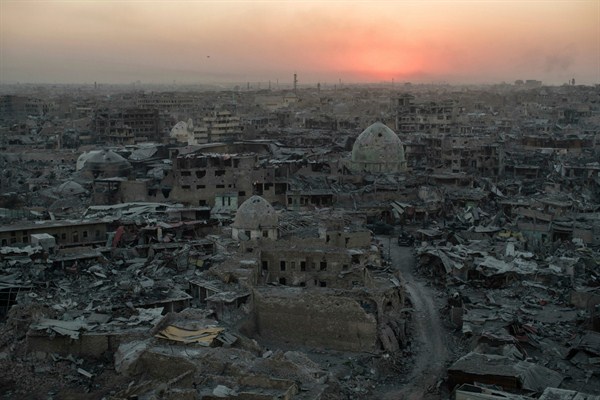On July 9, Iraqi Prime Minister Haider al-Abadi’s long-awaited announcement finally came: The self-proclaimed Islamic State’s occupation of Mosul, Iraq’s second-largest city, was over. In its wake, the Islamic State left thousands dead, and victory in Mosul, after perhaps the worst urban warfare this century, looked more like devastation. Over a million people were displaced.
While the fighting is not over, the eventual outcome—the Islamic State’s defeat in Mosul—is not in doubt. Still, much of the city is in ruins without even the most basic public services, and that’s the good news. The bad news is where things are likely to go from here. The Iraqi government has not released a formal reconstruction plan, but the bits and pieces that are available do not paint an encouraging picture.
If it follows through, the government’s plan at this point is to rebuild Mosul and other liberated areas over the next 10 years with $100 billion in financing from various sources. When adjusting for inflation, that’s about half the amount the U.S. spent on the Marshall Plan to rebuild Europe after World War II. As Iraq’s minister of planning, Salman al-Jumaili, noted, “The government is trying to provide the figure through grants, international loans, and from what has been provided through the general budget.”

